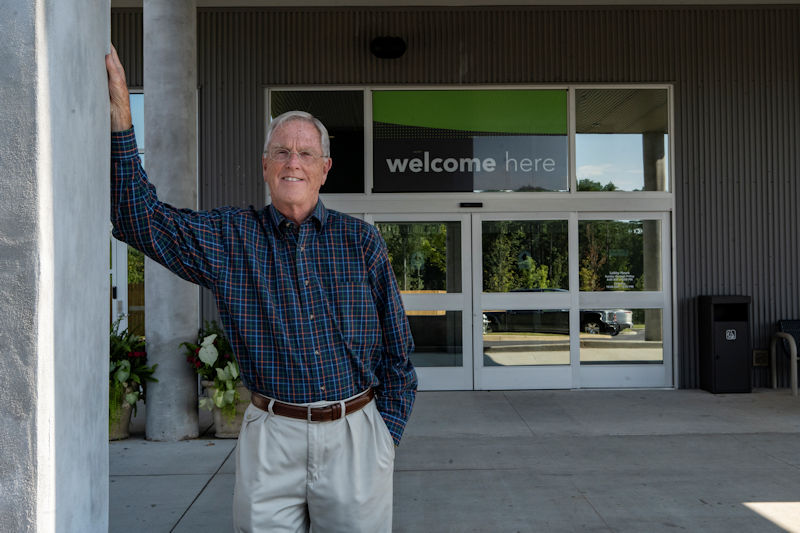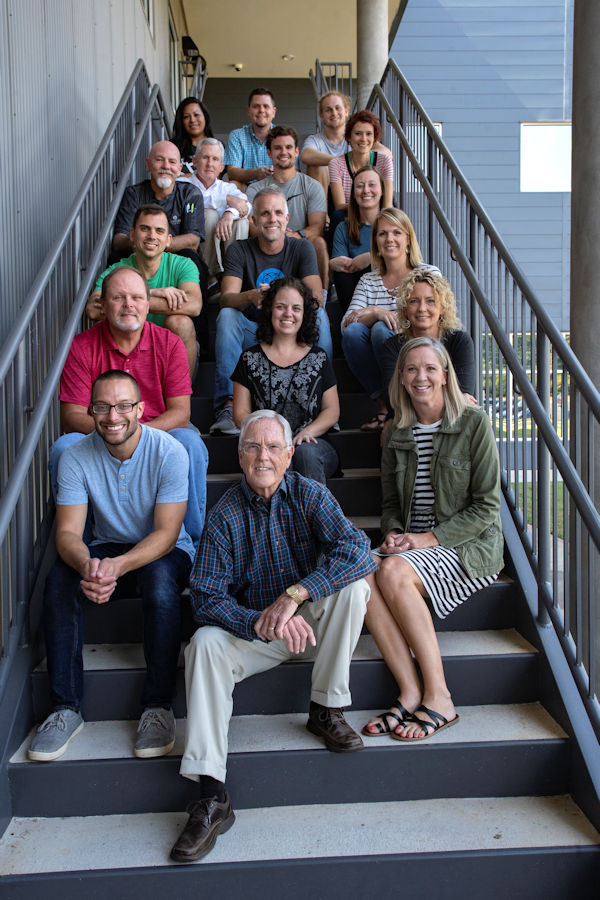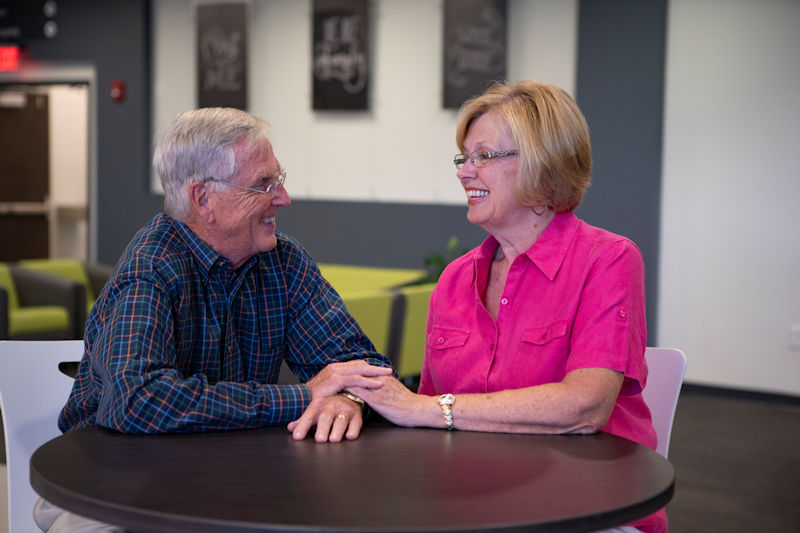After a half-century in the ministry — including more than 20 years pastoring a church in Chattanooga, Tennessee — Dale Lovelady thinks the Lord had something to do with his fortuitous move to Carrollton four years ago.
Lovelady, 71, and his wife Linda moved to join his son Shannon as an associate minister at Southern Hills Christian Church in Carrollton. Then, in 2017, Lovelady began experiencing some irritation and pain in his chest.
“It was something between a pain and an itch, but I could rub it and it seemed like it’d go away,” said Lovelady. “Then my wife saw me rubbing it and told me, ‘come over here,’ and she started feeling it and found a knot right to the side of the nipple.”

Breast cancer is uncommon in men — but not impossible. According to the American Cancer Society, more than 2,500 new cases of invasive breast cancer are diagnosed in American men each year, and almost 500 men die of the disease.
“Like women, men are born with breast tissue, including the ducts and glands that women have, though these do not usually become functional the way women’s do,” said J. Richard Bland, MD, a board-certified radiation oncologist with Tanner Radiation Oncology and chair at Tanner Cancer Care. “Nonetheless, even if they’re not functional, they’re still present in the breast tissue of every male, and they’re the points where breast cancer typically begins.”
Lovelady knew the odds of developing breast cancer as a man were low, but he knew he should have it checked out.
“I had a 1 in 1,000 chance of developing breast cancer,” said Lovelady. “I guess I should’ve played the lottery that same week.”
He made an appointment with his primary care physician, Frederick Makori, MD, who is board-certified in internal medicine with Tanner Primary Care of Carrollton. Dr. Makori sent Lovelady for an ultrasound right away, which was then immediately followed by a mammogram.
“Getting a mammogram was kind of an experience,” said Lovelady. “But the radiologist could tell that there was something there, and he didn’t want to wait and keep an eye on it so they sent me for a biopsy.”
Raul Zunzunegui, MD, a board-certified and fellowship-trained surgeon with Comprehensive Breast Care Center, performed the biopsy and called Lovelady on a Sunday afternoon as soon as the results were in: it was malignant.
Instead of being shocked, though, Lovelady took it in stride. He found solace in his faith and knew God has a plan for everything.
“It didn’t take me totally off guard,” Lovelady said. “This was something that had been going on for months, so I knew something was wrong. But I looked at it as another opportunity to glorify God.”
From the beginning, Lovelady was determined to deal with his breast cancer treatment in a healthy, open way. He openly discussed it with the staff and congregation at Southern Hills, laughed about it and leaned on the church for support.

Dr. Zunzunegui performed Lovelady’s mastectomy in November to remove the tumor. Tissue from the cancer was sent for analysis using MammaPrint, a genomic test that helps determine a tumor’s risk of reoccurring within 10 years of diagnosis so doctors can make more informed decisions regarding treatment.
The MammaPrint test indicated that Lovelady’s cancer had a low risk of recurring, so he was able to forgo chemotherapy to reduce the risk of recurrence. Cancer was found in a lymph node, however, so Lovelady received a round of 28 radiation treatments with Dr. Bland at Tanner Cancer Care’s Roy Richards, Sr. Cancer Center. Several women at the church who had undergone cancer treatment themselves offered Lovelady insight into what the treatment would be like.
The radiation treatments ended on the last day of January — which also happened to be Lovelady’s birthday.
“It was quite a present and a blessing,” he said.
Through it all, Lovelady enjoyed tremendous support from his family, the church, the community — and the team at Tanner Cancer Care.
“My whole experience with Tanner — starting with Dr. Makori immediately getting things going on my diagnosis to working with the surgeons, the oncologists and the people at the radiation center — I could not have asked to be treated any better,” said Lovelady. “Anyone who thinks they need to go to Atlanta should know that they can get the best treatment right here.”
Lovelady said he appreciated how the doctors would make time to talk to him, make him feel relaxed, answer his questions and follow up to see how he was doing during and following treatment.
“Helping patients understand their diagnosis and their treatment options allows them to be partners in their care,” said Dr. Zunzunegui. “It’s important to us, as medical providers, that our patients and their loved ones feel empowered to make educated choices and understand that this is a team approach — the surgeons, the medical oncologists, the radiation oncologists, the radiologists and the patient are all on the same page.”
Lovelady and his wife, Linda, have three children and 11 grandchildren. Whether or not his kids and grandkids were at an increased risk for breast cancer was a concern for Lovelady, whose own mother passed away with breast cancer at age 60.
Regardless of family history, however, national guidelines recommend all males with breast cancer have genetic testing. In Lovelady’s case, the testing found that he did not carry either of the two BRCA gene mutations — or others that could increase his children’s risk.
And if someone wonders if they should get checked out, Lovelady said, the answer is “yes.”

“You shouldn’t feel that the sky is falling all the time and being afraid, but if something seems unusual and it doesn’t go away, go ahead and let someone help you come out at the right place,” said Lovelady. “Like any disease, breast cancer can happen to anyone, just out of the blue.
“I was fortunate that, when it happened to me, I was here,” he said.